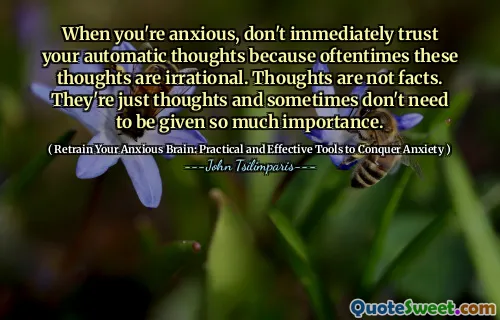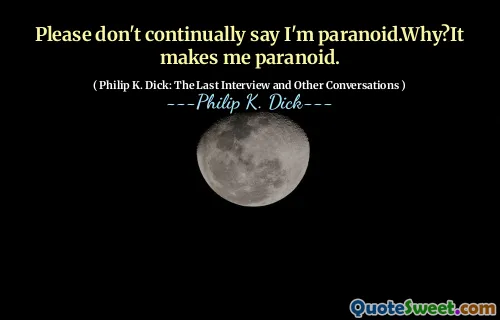
When you're anxious, don't immediately trust your automatic thoughts because oftentimes these thoughts are irrational. Thoughts are not facts. They're just thoughts and sometimes don't need to be given so much importance.
This quote highlights an important aspect of managing anxiety by encouraging a critical examination of one's automatic thoughts. Often, anxiety can trigger rapid, involuntary thoughts that seem convincing at the moment but aren't grounded in reality. Recognizing that thoughts are not necessarily factual can serve as a powerful reminder to pause and evaluate before accepting them as truth. By doing so, individuals can break free from the cycle of anxious ruminations that amplify distress. It underscores the importance of cognitive flexibility; instead of succumbing to the immediacy of anxious thoughts, we can view them as temporary mental events rather than definitive truths. This perspective fosters mindfulness and encourages a more objective stance towards one's internal experiences. Retraining the mind to differentiate between thoughts and facts can significantly reduce the emotional impact of anxiety. Practically, this approach invites mindfulness techniques and cognitive behavioral strategies—like questioning the evidence for a distressing thought or considering alternative explanations—to challenge irrational patterns. Understanding that our mind can generate scenarios or beliefs based on fears rather than facts empowers us to respond with greater clarity and calm. Overall, this quote advocates for a compassionate and pragmatic approach to mental health, emphasizing that not every thought warrants the same level of importance or belief. Cultivating this awareness is a valuable step towards emotional resilience and mental well-being.

